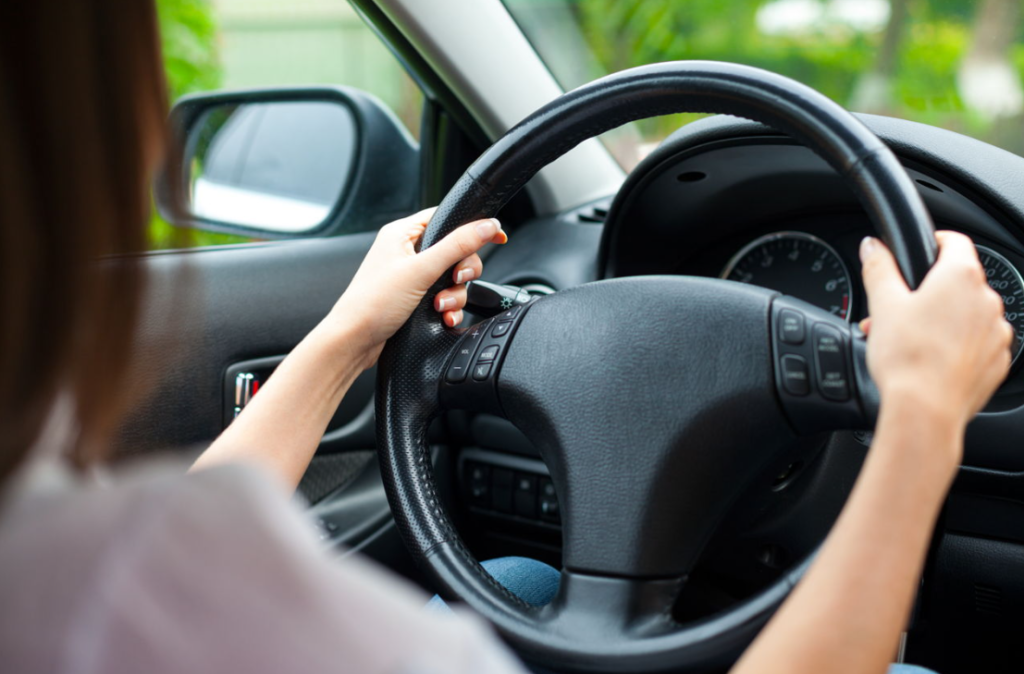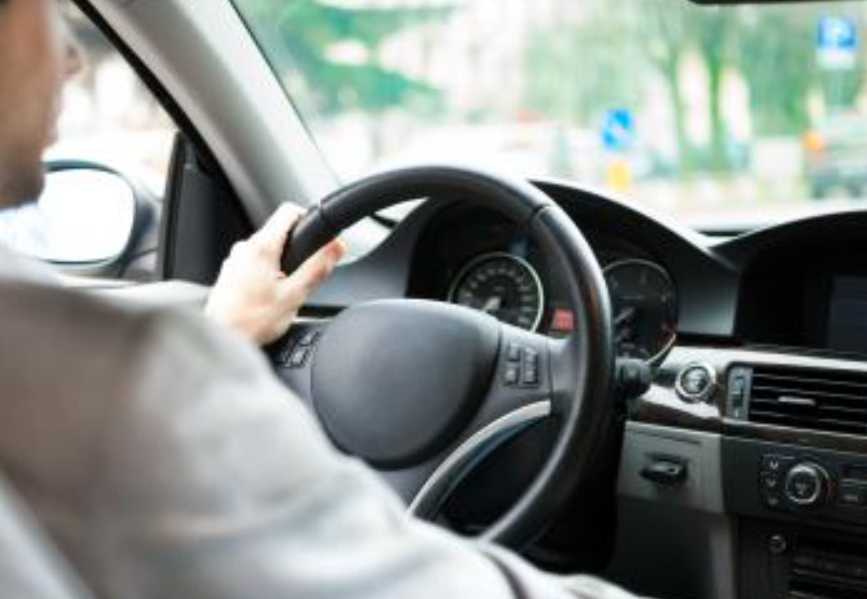Every driver dreads the moment their car begins making unusual noises, like the unsettling whirring noise when driving. The importance of addressing such issues promptly cannot be overstated, as they could indicate serious mechanical problems.

The Science Behind Car Whirring
How Speed and RPM Relate to Whirring: The whirring noise your car makes when driving may change pitch or intensity with speed or RPM (revolutions per minute). Higher RPM or speed could intensify the noise due to increased strain on certain vehicle components.
Components Contributing to the Noise: Various components can contribute to the whirring noise your car makes when driving. This can include wheel bearings, differentials, transmission, or even the power steering system.
Impact of Driving Conditions: Driving conditions, such as rough terrain or harsh weather, can amplify the whirring noise your car makes when driving. These conditions can place additional stress on your vehicle’s components.
Causes of car making whirring noise when driving
Worn-Out Wheel Bearings
One common cause of your car making whirring noise when driving is worn-out wheel bearings. These components reduce friction between the wheel and axle, and when worn, they can create a pronounced whirring sound.
Damaged Differential Gears
Differential gears, responsible for distributing torque to the wheels, can cause a whirring noise if they’re damaged or poorly lubricated.
Transmission Troubles
The transmission, vital for gear shifting, can also contribute to your car making whirring noise when driving if it is experiencing issues.
Power Steering Problems
Problems with the power steering system, especially when it’s low on fluid, can generate a whirring noise, particularly when turning the steering wheel.
Diagnosing the Whirring Noise
Identifying the Location of the Noise
By driving slowly in a quiet, safe place, you can try to identify the noise source. The whirring noise might increase while turning, indicating a possible issue with wheel bearings or power steering.
Assessing Transmission and Differential
Professional assessment of the transmission and differential is advisable if you suspect these as the source of the whirring noise your car makes when driving.
Checking Power Steering Components
If the whirring noise is most noticeable during steering, checking the power steering system is crucial. This can include assessing the fluid levels and checking for possible leaks.
DIY Fixes for Whirring Noise
Replacing Faulty Wheel Bearings
If a faulty wheel bearing is causing the whirring noise, replacing it could solve the problem. However, this is a complex job and might require professional help.
Lubricating Differential Gears
Inadequate lubrication can lead to differential gears making a whirring noise when driving. Changing the gear oil can resolve this issue.
Transmission Fluid Check and Change
Checking and changing the transmission fluid as needed can often reduce the whirring noise your car makes when driving.
Professional Repairs and Maintenance
When to Consult a Mechanic
If the whirring noise continues after initial attempts at resolution, or if you’re not confident in diagnosing the problem yourself, it’s time to consult a mechanic.
Finding a Reliable Automotive Specialist
Find a reliable specialist who has experience with your specific vehicle make and model. They can properly diagnose and treat the whirring noise your car makes when driving.
Essential Car Maintenance to Prevent Whirring
Regular maintenance is crucial to prevent issues like a whirring noise when driving. This includes routine oil changes, tire rotations, and checking brake systems.
Preventive Measures for a Quieter Ride
Routine Tire and Wheel Maintenance
Properly inflated tires and well-maintained wheels can prevent several noise issues, including the whirring noise when driving.
Caring for Differential and Transmission
Regular servicing of your car’s differential and transmission, including fluid changes and leak checks, can help prevent a whirring noise when driving.
Power Steering System Upkeep
Maintaining the power steering system, especially keeping it well lubricated, is crucial to prevent a whirring noise when turning the steering wheel.
Noise Reduction in the Cabin
Soundproofing Techniques for Cars
Installing soundproofing materials in your car’s cabin can significantly reduce the intensity of noises such as the whirring sound when driving.
Noise Dampening Materials
Materials like sound-deadening mats, insulating foam, or spray can help dampen the noise reaching the cabin, providing a quieter ride despite the whirring noise.
Weather-stripping and Insulation
Proper weather-stripping and insulation around doors and windows can prevent exterior noise, including the whirring sound, from penetrating the cabin.
Safety Implications of Whirring Sounds
Understanding Potential Hazards
Persistent whirring noise when driving can indicate serious issues that could potentially affect your safety on the road, like failing wheel bearings or power steering problems.
Safety Precautions While Driving
If your car making whirring noise when driving, avoid long trips or high speeds until you identify and address the problem.
Handling Emergency Situations
In an emergency, pull over safely, call for roadside assistance, and have your car towed to a garage if the whirring sound becomes significantly louder or is accompanied by other worrying symptoms.
Impact on Vehicle Performance
Effects on Handling and Control
A car making a whirring noise when driving may experience compromised handling and control if the source of the noise affects components like the wheel bearings or power steering.
Relationship Between Noise and Performance
Whirring noise often indicates mechanical issues that, if left unattended, can degrade overall vehicle performance.
Maintaining Optimal Driving Experience
Addressing the whirring noise when driving promptly and adequately can ensure a smooth, quiet, and optimal driving experience.

Myths and Misconceptions about Car Whirring
Debunking Common Misunderstandings
There are several myths regarding car making a whirring noise when driving. One common myth is that the noise is normal and can be ignored. This is incorrect – any unusual noise from your car should be investigated to prevent possible serious issues down the line.
Clarifying Facts for Car Owners
The fact is that the whirring noise your car makes when driving can indicate serious mechanical problems. This can include worn-out wheel bearings, failing transmission, or power steering problems. It’s crucial to address such noises promptly to avoid expensive repairs in the future.
Whirring Noises in Different Car Models
Model-Specific Whirring Issues
Certain car models might be more prone to certain issues that result in a whirring noise. For example, some models might have a known issue with wheel bearings wearing out prematurely. Consult a mechanic familiar with your car model to help diagnose and address the problem effectively.
Solutions and Tips for Each Model
Solutions for a car making a whirring noise when driving can vary depending on the specific car model. Always refer to the manufacturer’s guidelines or consult a professional mechanic for the best approach to handle your specific situation.
Environmental Impact of Car Whirring
Noise Pollution and Its Consequences
Excessive car noises, including a whirring noise when driving, can contribute to noise pollution, which can disturb wildlife and human populations alike. It’s important to keep our vehicles as quiet as possible for the sake of the environment.
Environment-Friendly Driving Practices
Eco-friendly driving practices include regular car maintenance to prevent issues like a whirring noise. Using quieter tires, regular servicing, and immediately addressing any unusual car noises are all part of responsible car ownership.
Long-Term Maintenance for Noise Prevention
Creating a Maintenance Schedule
Preventive maintenance is key to avoiding your car making a whirring noise when driving. Create a regular maintenance schedule that includes checking wheel bearings, transmission, differential, and power steering system. This proactive approach can help you identify potential problems before they become serious issues.
Staying Proactive with Regular Checkups
Regular checkups by a professional mechanic can ensure that your car stays in top condition and help avoid issues like whirring noise when driving. They can catch minor issues before they become significant problems, saving you money and time in the long run.
Enhancing Comfort and Serenity While Driving
Tips for a Quieter and Smoother Ride
To enjoy a quieter and smoother ride, address any unusual noises promptly, maintain your car regularly, and consider investing in soundproofing your vehicle’s cabin. Keeping your tires well-inflated and balanced can also reduce road noise.
Making Your Commutes Pleasant
A car making a whirring noise when driving can make your commutes stressful. By addressing the problem, you can ensure your drives are more enjoyable. Remember, a peaceful ride is not just about comfort, but also about safety.
Addressing Whirring in Electric Vehicles
Unique Considerations for EV Owners
Electric vehicles (EVs) have their own set of considerations when it comes to whirring noises. Because EVs are generally quieter, unusual noises can be more noticeable. Whirring could indicate issues with the electric motor, drivetrain, or cooling system.
Whirring Noise and Electric Powertrains
The powertrain in EVs is different from traditional cars, and the whirring noise could be due to issues with the electric motor or the gear assembly. If your EV makes a whirring noise when driving, it’s best to consult an EV specialist.
Common Misdiagnoses and How to Avoid Them
Identifying Similar Noises
Whirring noises can be similar to other types of car noise, leading to misdiagnoses. For example, a grinding or humming noise can sometimes be confused with whirring. Accurate diagnosis requires experience and expertise.
Thorough Inspection for Accurate Diagnosis
A thorough inspection by a professional mechanic can help ensure an accurate diagnosis if your car making whirring noise when driving. This often involves inspecting various components, including the wheel bearings, transmission, differential, and power steering system.
Summary: Silence the Whirring for a Peaceful Drive
Recap of Key Points
A whirring noise when driving can be due to various issues, including worn-out wheel bearings, damaged differential gears, or power steering problems. Regular maintenance, prompt action at the first sign of trouble, and professional help when necessary can ensure your car stays quiet and performs optimally.
Importance of Timely Action
Addressing a whirring noise promptly is vital. Not only can this prevent minor issues from becoming major problems, but it also ensures the safety and performance of your vehicle. The road to a peaceful drive starts with timely action at the first sign of a whirring noise.
Frequently Asked Questions (FAQs)
Is Car Whirring While Driving Dangerous?
Yes, if your car making whirring noise when driving, it can be dangerous as it often indicates a problem with crucial components such as wheel bearings or power steering.
Can I Ignore the Whirring Noise?
Ignoring the whirring noise is not advisable. It’s best to address the noise promptly to prevent possible damage to your car and to ensure your safety on the road.
How Much Does Wheel Bearing Replacement Cost?
The cost of wheel bearing replacement can vary depending on your car model and the complexity of the job, but it typically ranges from $150 to $600.
Should I Continue Driving My Car If It’s Whirring?
If the whirring noise is significant or if it gets worse while driving, it’s safest to stop driving and seek professional help immediately.
How Often Should I Check Transmission Fluid?
It’s recommended to check transmission fluid every 30,000 to 60,000 miles. However, refer to your vehicle’s owner manual for the manufacturer’s recommendation.
Conclusion
Car owners are empowered to resolve whirring issues when equipped with the right knowledge. By understanding what can cause such a problem, and how to address it, drivers can ensure a quieter, safer, and more enjoyable driving experience.